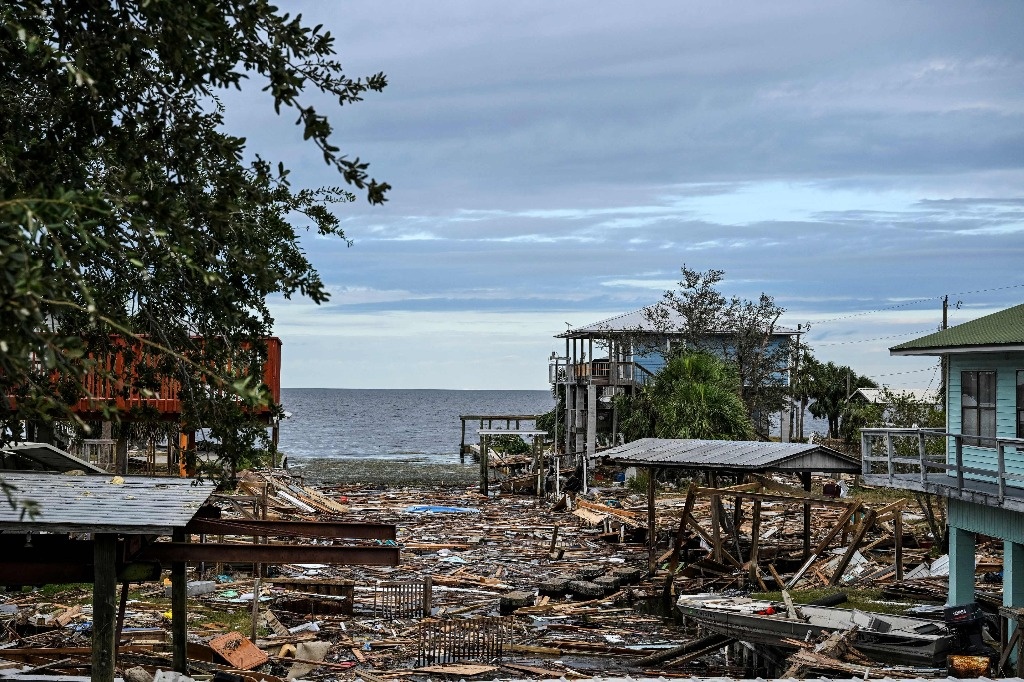Millions of Americans continued without electricity this Saturday and many faced “catastrophic” flooding, while the remnants of powerful Hurricane Helene hit the eastern and midwestern states of the United States, where its passage left at least 53 dead.
Rescue teams are working to restore power and deal with the consequences of massive floods, which have destroyed homes, roads and businesses in several states.
At least 22 people have died in South Carolina, 17 in Georgia, 11 in Florida, two in North Carolina and one in Virginia, according to a balance prepared by AFP based on statements from local authorities.
“I am deeply saddened by the human loss and devastation caused by Hurricane Helene,” US President Joe Biden said on Saturday. “The road to recovery will be long,” he added.
On Cedar Key, an island of just a few hundred people off the west coast of Florida, roofs were torn off and walls were blown open.
“It breaks my heart to see this,” Gabe Doty, a municipal employee, told AFP. “A lot of houses are gone, the market is gone. The post office is gone. It’s a real tragedy, and it’s going to be difficult to rebuild,” he said.
Helene made landfall on Thursday afternoon near Tallahassee, capital of the state of Florida, as a Category 4 hurricane on a scale of 5, with winds of 225 km/h, and continued to wreak havoc even after weakening to a post-tropical cyclone.
The storm then continued across several states, causing intense flooding, before gradually losing strength.
Progressive improvements
“Conditions will improve on Saturday, following the catastrophic flooding of the last two days,” said the US National Hurricane Center (NHC).
However, the storm has left vast areas destroyed by landslides and floodwaters, including as far away as Asheville, North Carolina.
“This is one of the worst storms in modern history for parts of western North Carolina,” its governor, Roy Cooper, said at a news conference Friday night.
Rescue operations continue, his office said.
More than a million customers remained without power Saturday afternoon in South Carolina and another 730,000 in Georgia, plus several hundred thousand in other states, according to the tracking website poweroutage.com.
Helene moved over especially warm waters after forming in the Gulf of Mexico.
“It is likely that these very warm waters influenced Helene’s rapid intensification,” climatologist Andra Garner told AFP.
By warming ocean water masses, climate change increases the likelihood of rapidly intensifying storms and the risk of more powerful hurricanes, scientists say.
#Hurricane #Helene #leaves #dead
– 2024-10-04 15:02:54
